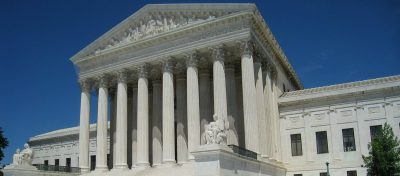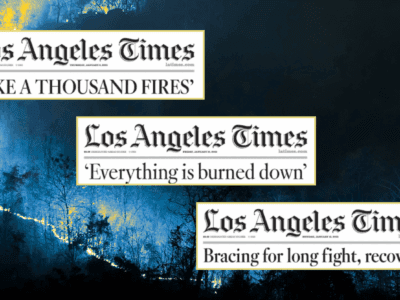Is Loper v. Raimondo Really the Power Grab Commentators Assume?
The Supreme Court has already grabbed power from agencies through the major questions doctrine.
 Headlines about today’s decision in Loper v Raimondo overturning the 40 year-old decision in Chevron v NRDC that granted agencies deference in their interpretation of ambiguous statutes focus on the “massive power grab,” the decision’s “sweeping” nature and call it a “blow” to the administrative state. My view may be idiosyncratic but I don’t view the decision as the power grab being portrayed. That power grab has already occurred. The Supreme Court has used a different doctrine, the major questions doctrine, to dramatically limit executive and agency power. The squishy nature of that doctrine — preventing agencies from acting at all if Congress hasn’t spoken directly to an issue of “major economic significance”– is also giving lower courts way too much discretion to strike down executive branch policies with which they disagree.
Headlines about today’s decision in Loper v Raimondo overturning the 40 year-old decision in Chevron v NRDC that granted agencies deference in their interpretation of ambiguous statutes focus on the “massive power grab,” the decision’s “sweeping” nature and call it a “blow” to the administrative state. My view may be idiosyncratic but I don’t view the decision as the power grab being portrayed. That power grab has already occurred. The Supreme Court has used a different doctrine, the major questions doctrine, to dramatically limit executive and agency power. The squishy nature of that doctrine — preventing agencies from acting at all if Congress hasn’t spoken directly to an issue of “major economic significance”– is also giving lower courts way too much discretion to strike down executive branch policies with which they disagree.
I agree that the Loper decision will put more power in the hands of unelected judges and diminish the deference accorded agency interpretations of statutes. But there are two major differences between eliminating Chevron deference and the major questions doctrine that make the major questions doctrine a bigger and more dangerous power grab. First, the major questions doctrine allows courts to eliminate agency power altogether rather than decline to defer to an agency’s interpretation of a law it administers. The Supreme Court has already used the MQD, as it is known, to strike down vaccine mandates, restrict President Biden’s power to grant student loan relief, and reign in EPA’s authority to regulate greenhouse gases. Lower courts are doing the same, including striking down additional vaccine mandates; a Nuclear Regulator Commission granting of a license for the storage of nuclear waste; a Consumer Financial Bureau regulation defining discrimination as an unfair business practice, and an executive branch definition of the social cost of carbon (subsequently overturned). All used the MQD to do so. As Natasha Brunstein has found, “in a majority of cases concerning Biden Administration agency actions and executive orders, judges applied the doctrine to reach outcomes that aligned with the political party of their appointing President.” But second, the major questions doctrine is completely manipulable. Courts have been all over the map in even saying what the doctrine is, let alone in finding whether something is of vast economic significance. As Brunstein concludes, judges “have taken vastly different approaches to defining and applying the doctrine both within and across circuits. … [M]any judges may view the doctrine as little more than a grab bag of factors, which they seem to be choosing from at their discretion.”
To be sure, courts can and will use the Loper decision to interpret ambiguous statutory provisions in ways that comport with their political leanings. And we will see courts interpret statutes in ways that will seem blatantly wrong. But in doing so judges will at least be constrained by the statutory language they are interpreting, and the larger context of the statute. They will not be able to manipulate the statutory language quite as easily as they can the MQD. And frequently their interpretation may limit the breadth of an agency decision but seems less likely to eliminate agency power to act altogether.
In short, the Loper decision will be just one more tool hostile judges can use to undermine the administrative state and regulations and rule makings with which they disagree. The Major Questions Doctrine is, in my view, a far more pernicious and dangerous tool. The dismantling of the administrative state has already been occurring at an alarming rate with far less media attention than the Loper decision is receiving.
Reader Comments
One Reply to “Is Loper v. Raimondo Really the Power Grab Commentators Assume?”
Comments are closed.







Judging is a unique profession and in this profession, judges exhibit high standards that impact the quality of life for we the people. The role of such public servants requires honesty, impartiality, and fairness because judges are dedicated to the public welfare. This decision places the profession in a position to adhere to the highest calling of professional responsibility.